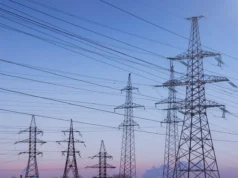Why Utilities Matter in Property Investment
Selecting the best electricity provider Singapore appears akin to a family activity, yet to the property investor, it is a component in the returns formula. Rental yield is not only rent less mortgage but also all those minor recurrent expenses that chew into your margins. An inadequately selected electricity plan will erode profits just like leaky taps that leak water without notifying anybody. Those who think big and small at the same time tend to get the bigger rewards over the long run.

Rental Units: Who Pays the Bill?
The former is a simple one: are tenants to manage their own utilities, or does the landlord include them in the rent? Even in situations where tenants pay their own utilities, the supplier remains an important factor. A good landlord who provides tips on how to save money usually endears herself. That goodwill is converted to happier tenants, reduced turnover, and reduced vacancy costs.
Bundled Utilities Strategy
Other landlords like to include electricity in an all-in rental package. It makes life easier for tenants, particularly short-term ones or expats. The trick here, however, is that your margins are compressed when the usage peaks. In this case, a fixed-rate plan shields you from sudden market price jumps. Forecasting the financial results becomes easier with uniformity.
Resale vs. New Units: Different Energy Profiles
The BTO or condo unit that has just been renovated with the new modern appliances is much less power-hungry compared to the old resale flat whose fixtures have already started to wear. The investors should align plans with the property profile.
Older Properties
These units can be older with wiring, energy-consuming aircon units, and tenants staying at home all day. Bills climb higher. The returns here are insulated by the fixed-rate plans, as an unexpected spike in tariffs would erase a portion of your rental income cushion.
Newer Properties
The construction of modern houses typically includes energy-efficient appliances and light-saving lights. The usage rates are generally reduced, particularly where younger working tenants spend less time at home. Discount-off-tariff schemes will be the brightest in this case when the prices in the market fall.
Short-Term Rentals: Agility Wins
Flexibility is everything to investors operating short-term rentals. Visitors can turn the aircon on and off. Or they might hardly use the place at all. It is dangerous to commit to a three-year plan. A year-long or even a shorter plan provides some room to pivot.
Usage Patterns That Matter
Weekday-heavy tenants? Probably less during working time.
Families with kids? Washing machines and cookers are constantly running.
Digital nomads? High daytime power draw from laptops, routers, and air conditioning.
When these trends are compared with the appropriate plan, this will curb the tendency of making electricity the silent killer of the profits.
The Bigger Picture: Cash Flow Discipline
Electricity expenses might seem small when compared to mortgages, but investors survive and die by cash flow. The amount would be to imagine cutting monthly bills by only $30. That amounts to more than 1000 a year across three units. Sufficient to meet low-ticket repairs or vacancy losses. Each cent saved is also a cent that will build up net yield.
Habit of Review
Rental markets, bank loan rates, and property taxes are some of the areas that investors are known to be watching. However, most people do not pay attention to electricity contracts once they identify them. Make reminders of contracts that are about to run out. The savings engine continues to work silently in the background at a better rate through re-contracting.
Green Energy Options: Tenant Appeal
There are renewable energy add-ons offered by some providers. They can be somewhat more expensive, but they can be appreciated by eco-conscious tenants. This performs particularly better in newer condos where younger professionals rent. This makes it a slight marketing advantage to sell your unit as environmentally friendly.
Higher Rent Through Value-Add
With a modest inflation in the cost of electricity, to the extent that you can push rental prices a notch higher without causing unease to the tenants, then the calculations can play in your favor. It is not a question of charity—it is a question of placing your property in an intelligent location within a competitive market.
Common Mistakes That Eat Returns
Loss of memory to compare providers and default to SP tariffs.
Entering into long-term contracts before testing how tenants will use them.
This is assuming that all tenants use electricity in an equal manner.
Disregarding promotional rebates available by providers that could presently be used to offset setup costs.
A Quick Anecdote
One investor rented a unit where the utilities were included in the rent. The air conditioner users were tenants. He had signed a variable tariff measure. Energy prices shot up that year, reducing his rental earnings by as much as 20 percent. He would have maintained yields had he decided to use a fixed-rate strategy. Lesson: do not guess the type of match plan to use; match it to tenant behavior.
Practical Tips for Smarter Choices
Student tenants or working professionals have slightly different needs, as discounted tariff plans usually work, as they are away most of the day.
In the case of families or retirees, it is safe to stick to fixed rates.
Reevaluate again after half a year of real bills—usage habits will show themselves soon.
There is nothing wrong with changing providers during the course of ownership. Minor administrative stuff is worth saving.
Electricity as an Investment Lever
Many investors obsess over entry prices, interest rates, and rental demand. Few look at utilities as a lever for yield. The rationale is simple, though: cutting down on recurrent expenses is identical to increasing rental income—there is no need to worry about finding more lucrative tenants. Electricity can be dull, but this is a lever that you can touch.
Small Wins, Big Impact
No investor will be boasting at the end of the day that he saved $25 a month in electricity. But pile that up over the years, through dozens of units, and it amounts to thousands saved. That is why long-term players live long. They do not make purchases intellectually—they execute them in an intellectual manner, down to the very utility bill.
Investors are quietly increasing their returns by making the decision of the most appropriate electricity provider in Singapore a financial decision rather than a household one. And quiet wins in property investment become the loudest stories of success.









